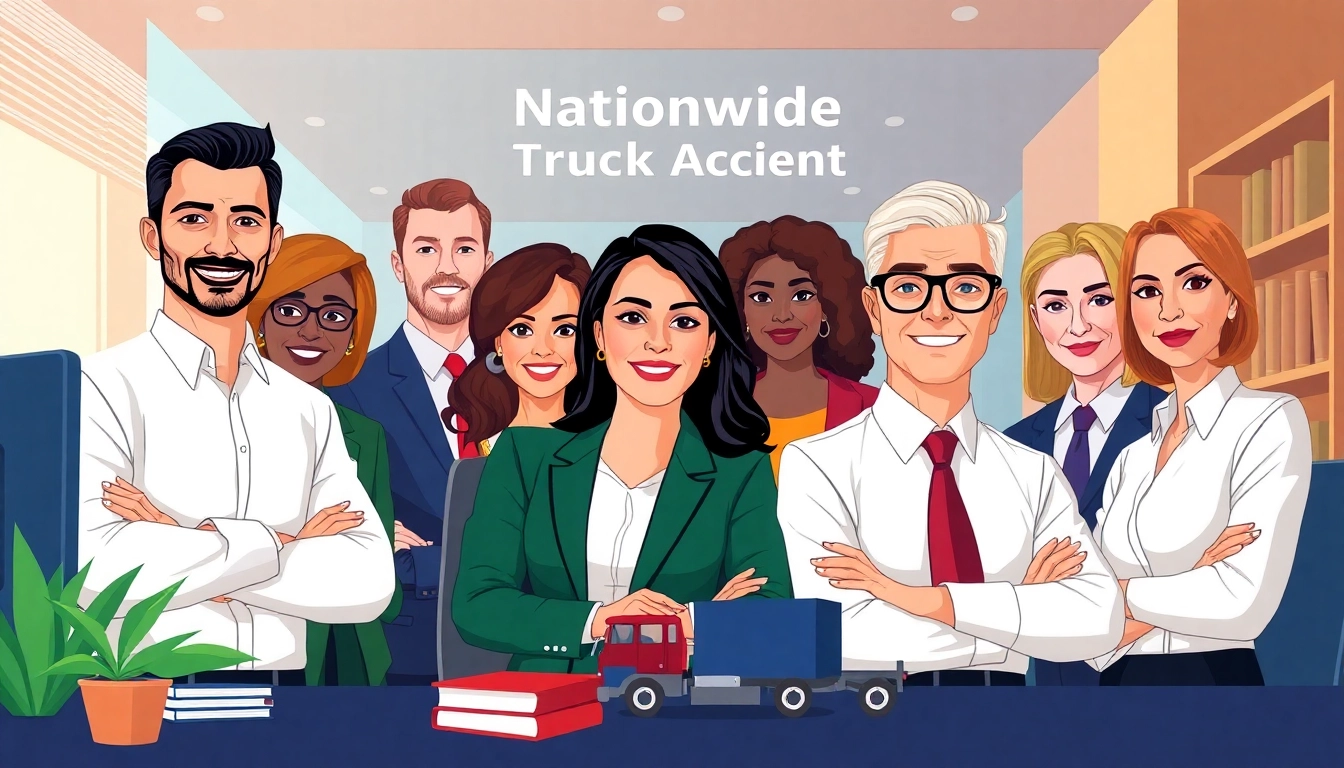Understanding Car Accidents in Florida
Car accidents are a prevalent issue across the United States, and Florida is no exception. With its vast road networks, tourist influx, and a high population density, understanding the dynamics of car accidents in Florida is crucial for any driver. Whether you’re a local resident or a visitor, it’s important to know how Florida’s car accident laws work, common causes of these accidents, and what steps to take should you find yourself in such a situation. If you’re seeking guidance, Florida car accident attorneys can provide the necessary legal support.
Overview of Florida’s Car Accident Laws
Florida operates under a “no-fault” insurance system, which means that drivers involved in accidents will typically seek compensation from their own insurance provider regardless of who was at fault. Under this system, drivers in Florida are required to carry Personal Injury Protection (PIP) coverage, which pays for medical expenses and other related costs up to a certain limit, regardless of fault.
This legal framework influences how car accidents are handled in the state, emphasizing the importance of having adequate insurance coverage. Additionally, while PIP insurance covers medical expenses, it may not fully compensate individuals for lost wages, pain, and suffering, making it pivotal to understand your legal options in the event of an accident.
Common Causes of Car Accidents
Understanding the primary factors contributing to car accidents can help both drivers and legal professionals identify potential liabilities. Some of the most common causes of car accidents in Florida include:
- Distracted Driving: One of the leading causes of road accidents, distractions can come from mobile phones, eating, adjusting the radio, or conversing with passengers.
- Speeding: With the thrill of wide-open roads, many drivers exceed speed limits, which increases the potential impact severity and reduces reaction time in emergencies.
- Driving Under the Influence (DUI): Alcohol and drugs severely impair judgment and reaction times, leading to disastrous consequences on the road.
- Reckless Driving: Aggressive behaviors, such as tailgating and weaving through traffic, significantly raise accident risks.
- Weather Conditions: Florida’s rainstorms can create hazardous driving conditions, making it essential for drivers to adjust their speed and driving habits.
Initial Steps After a Car Accident in Florida
Being involved in a car accident can be disorienting and stressful. However, knowing the appropriate steps to take immediately can significantly affect your case’s outcome:
- Check for Injuries: Ensure everyone’s safety first. Check yourself, passengers, and others involved in the accident for injuries.
- Call the Police: Report the accident to law enforcement. A police report can serve as critical evidence later.
- Document the Scene: Take photographs of the accident scene, vehicle damage, and any relevant traffic signs or signals.
- Exchange Information: Gather information, including names, contact details, insurance information, and license plate numbers from the other drivers involved.
- Notify Your Insurance Company: Inform your insurer about the accident as soon as possible to kickstart your claims process.
Why You Need Florida Car Accident Attorneys
After a car accident, many individuals question whether they need legal assistance. While it is technically possible to handle your case independently, hiring a reputable Florida car accident attorney can significantly improve your chances of securing fair compensation.
The Benefits of Hiring a Specialist
Florida car accident attorneys offer specialized knowledge and skills that can help navigate the legal landscape following an accident. Some key benefits include:
- Expertise in Local Laws: Attorneys are well-versed in Florida laws and regulations, providing tailored advice based on your unique situation.
- Negotiation Skills: They possess strong negotiation skills to advocate for your rights, especially when dealing with insurance companies known for lowball offers.
- Comprehensive Case Evaluation: Lawyers can analyze your case thoroughly, determine potential compensation, and identify liable parties.
- Contingency Fee Arrangements: Many attorneys work on a contingency fee basis, meaning you won’t pay them until you win your case, making legal support accessible to all.
How Attorneys Navigate Legal Challenges
The aftermath of a car accident can involve complex legal challenges. Here’s how Florida car accident attorneys can help:
- Evidence Collection: Attorneys will gather necessary evidence such as police reports, medical records, and witness statements to build a solid case on your behalf.
- Fault Determination: They can help establish liability by applying Florida’s comparative negligence laws to your case, examining how fault is assigned.
- Handling Insurance Claims: Navigating the intricacies of insurance policies and claim processes can be daunting; attorneys can manage this for you.
- Litigation Support: If your case goes to court, your attorney will represent you and advocate for your rights throughout proceedings.
Understanding the Cost of Legal Representation
One of the common hesitations people have when considering hiring an attorney is the cost. However, understanding the fee structures can alleviate these concerns:
- Contingency Fees: Most Florida car accident attorneys work on a contingency fee basis, meaning they only get paid if you win your case. Their fee usually ranges from 25% to 40% of the settlement amount.
- Additional Costs: While contingency fees cover attorney services, clients may still be responsible for costs related to filing fees, investigation expenses, and expert witness fees.
- Free Consultations: Many attorneys offer free initial consultations, allowing you to discuss your case without financial commitment.
Finding the Right Attorney for Your Case
Choosing the right attorney can significantly impact your case’s outcome. Here are essential tips for finding a Florida car accident attorney who aligns with your needs:
Key Qualities to Look for in Florida Car Accident Attorneys
When searching for a competent attorney, consider the following qualities:
- Experience: Look for attorneys with a specific focus on car accident cases and a proven track record of successful outcomes.
- Communication: Clear and consistent communication is critical; choose an attorney who keeps you informed throughout the process.
- Reputation: Research their reputation by checking online reviews, ratings, and any professional accolades.
- Empathy: A compassionate attorney will understand your situation and treat you with respect while navigating your case.
Questions to Ask During Your Consultation
During your initial consultation, it’s wise to ask specific questions to gauge the attorney’s capabilities:
- What percentage of your practice is dedicated to personal injury and car accident cases?
- What is your approach to handling cases like mine?
- What are your fee structures, and can you provide a breakdown of potential costs?
- What is the average time frame for a case similar to mine?
Evaluating Client Reviews and Testimonials
Reviews and testimonials can provide crucial insight into an attorney’s strengths and weaknesses. Consider these tips for evaluating feedback:
- Look for Patterns: Focus on recurring themes in reviews. Consistently positive or negative feedback can inform your choice.
- Check Multiple Sources: Use various platforms such as Google, Avvo, or industry-specific sites to gather a holistic view of the attorney’s reputation.
- Ask for Referrals: Personal recommendations from family or friends can guide you to trusted attorneys.
Building Your Case: Evidence and Strategy
Once you’ve secured legal representation, your attorney will begin the process of building a compelling case. Here’s an overview of the essential components:
Gathering Necessary Documentation
Gathering documentation is crucial for supporting your claim. Essential documents include:
- Police Reports: These provide an official account of the accident and are critical for establishing liability.
- Medical Records: Documenting injuries and treatment can illustrate the impact of the accident on your life.
- Insurance Policies: Understanding your own policy and that of the other driver can affect legal strategy.
- Witness Statements: Statements from individuals who witnessed the accident can corroborate your version of events.
Establishing Fault and Liability
The determination of fault is a complex yet vital part of any car accident case. Florida follows a comparative negligence rule, which means that even if you are partially at fault, you can still recover damages. Here are some steps involved:
- Gather Evidence: As mentioned, involving testimonials, photographs, and police reports can assist in establishing fault.
- Recreate the Accident: Your attorney may consult accident reconstruction specialists to provide clarity on what transpired.
- Consider Expert Testimony: In more complex cases, bringing in experts (e.g., medical, automotive) can bolster your argument.
Negotiating with Insurance Companies
Insurance companies often aim to minimize payouts, making negotiations a critical component of your attorney’s role. Effective strategies include:
- Presenting a Strong Case: Demonstrating the full extent of damages and establishing strong evidence can result in a fair settlement.
- Knowing When to Escalate: Sometimes, negotiations may fail. An experienced attorney will know when to move toward litigation.
- Maintaining Clear Communication: Constant communication with the insurance adjuster can help clarify terms and facilitate the negotiation process.
After the Settlement: Next Steps
Securing a settlement is just one part of the journey. Here’s what you need to know about the next steps after a settlement is reached:
How Settlements are Disbursed
Once a settlement is reached, the disbursement process typically involves:
- Signing the Release: You will need to sign a release form indicating that you agree not to pursue further claims for the accident.
- Settlement Check Processing: The insurance company will issue a settlement check, which may take several weeks to process.
- Payment of Fees: The attorney’s fees will be deducted from the settlement amount, alongside any medical liens that may apply.
What to Do if You Face Delays
Delays can be frustrating. Here’s how to manage them:
- Stay in Communication: Regularly check in with your attorney for updates concerning the disbursement of funds.
- Review Terms: Verify that all terms of the settlement have been complied with to prevent any hold-ups.
- Be Patient: While troubling, delays may occur for several reasons—staying calm and informed is crucial during this time.
Ongoing Support from Your Attorney
Even after a settlement, your attorney’s support doesn’t have to stop. Some ways they can provide ongoing assistance include:
- Future Claims: If new issues arise from the accident, your attorney can advise on any potential further claims.
- Guidance on Medical Bills: Your attorney may assist in negotiating medical bills or managing any liens post-settlement.
- Legal Questions: If questions about your settlement or related legal matters come up, having your attorney available can provide peace of mind.
In conclusion, handling a car accident’s aftermath can be a daunting process. However, with the right knowledge and legal support from experienced Florida car accident attorneys, you can navigate these challenges more effectively, ensuring both your rights and wellbeing are prioritized.




